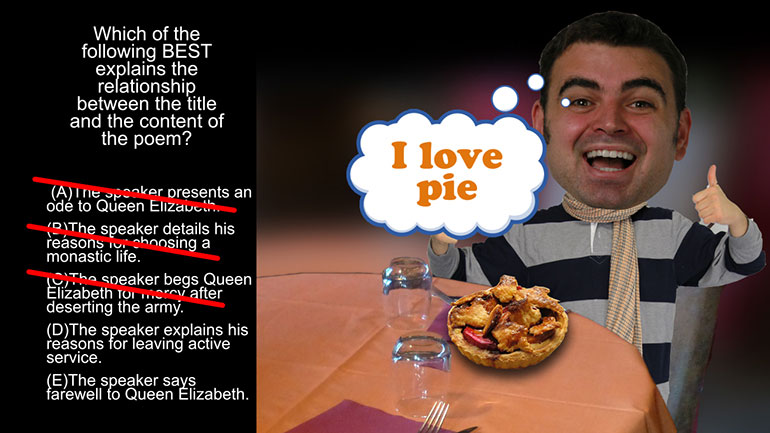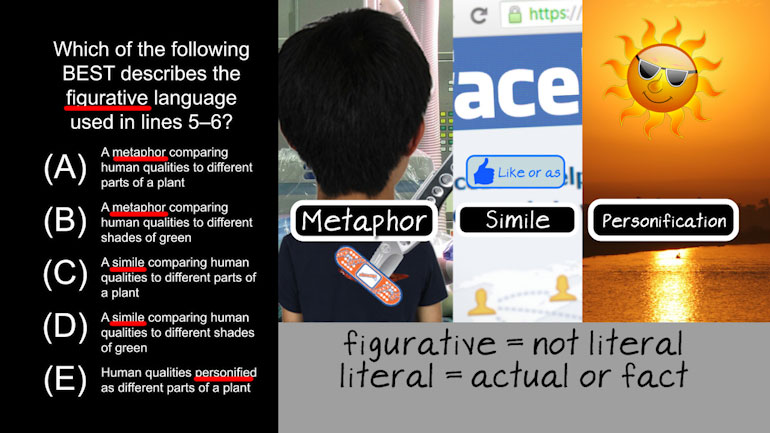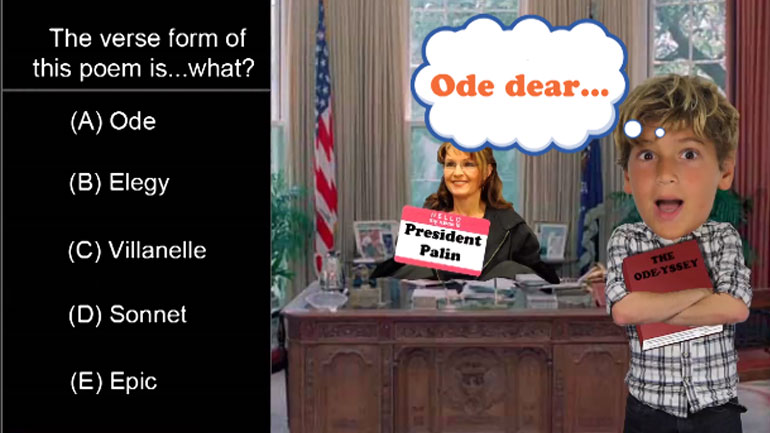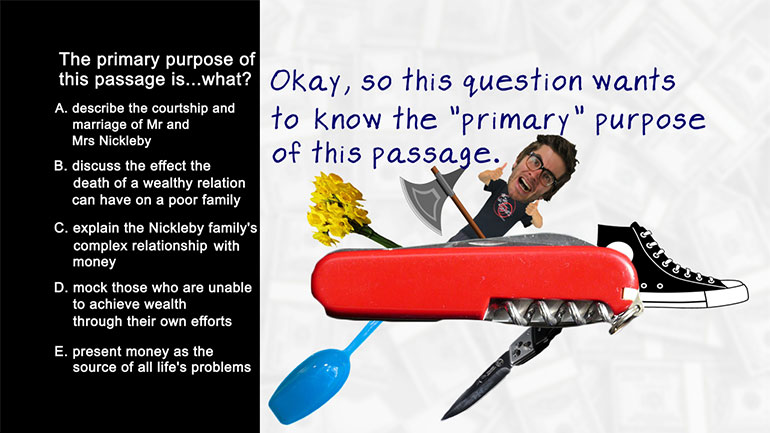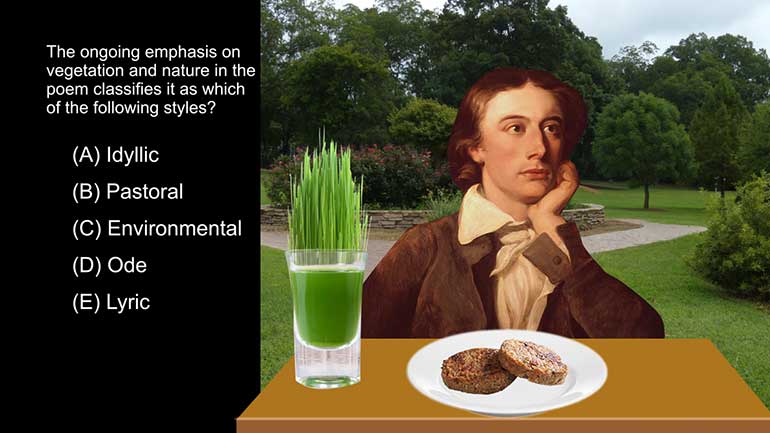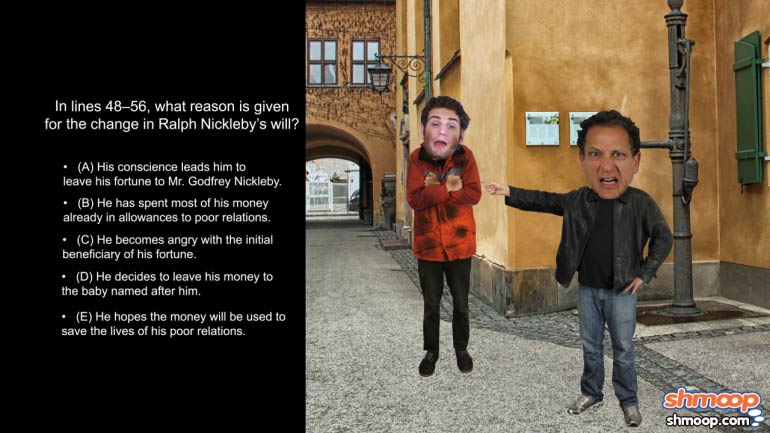ShmoopTube
Where Monty Python meets your 10th grade teacher.
Search Thousands of Shmoop Videos
Playlist AP® English Literature and Composition: Form and Structure 7 videos
AP English Literature and Composition 1.1 Passage Drill 6. Which of the following best explains the relationship between the title and the content...
AP English Literature and Composition 1.7 Passage Drill 6. Which of the following best describes the figurative language used in lines 5-6?
AP English Literature and Composition 1.1 Passage Drill 4. Which of the following is not true of the structure of this poem?
AP English Literature and Composition 1.1 Passage Drill 6 214 Views
Share It!
Description:
AP English Literature and Composition 1.1 Passage Drill 6. Which of the following best explains the relationship between the title and the content of the poem?
Transcript
- 00:03
Here's your shmoop du jour, brought to you by Queen Elizabeth, who probably spent a little
- 00:08
too much time sitting on the throne.
- 00:19
Which of the following BEST explains the relationship between the title and the content of the poem?
- 00:25
And here are the potential answers...
- 00:31
Okay, so... assuming the title isn't referring to someone saying "so long" to their upper limbs after some kind of riding lawn mower accident...
Full Transcript
- 00:39
...there must be some other meaning contained in the text.
- 00:42
This question wants to know... what does the title have to do with the rest of the poem?
- 00:47
Is this an ode to Queen Elizabeth?
- 00:49
Nah, can't be an ode. An ode is a poem that praises something, and the overall purpose
- 00:53
of this poem isn't to praise the Queen.
- 00:57
In poetic terms: "'Tis a shout-out, nothing more."
- 01:00
Is the speaker detailing his reasons for living a monastic life?
- 01:04
Well... lines 7 through 14 do mention the monastic, or monk-like, lifestyle...
- 01:09
...but again, it's not the overarching topic of the poem. So choosing "monastic" wouldn't
- 01:14
be fantastic. Is the speaker begging the queen for mercy
- 01:18
after deserting the army?
- 01:20
No, there's no mention of the speaker being a deserter. Although... we do hear he has
- 01:24
trouble turning down an apple tart. Is he explaining his reasons for leaving active service?
- 01:30
There we go. This poem is basically a retirement letter, with the speaker saying, in effect...
- 01:35
that he's getting too old for this <<censored beep>>.
- 01:37
So it's "arms" in military terms, and he's saying "farewell" to it.
- 01:42
Just to have all our bases covered... is the speaker saying farewell to Queen Elizabeth?
- 01:46
No, not to queenie herself... just to his service to her.
- 01:49
So yeah... our answer is D.
- 01:50
Okay, your Royal Highness, time to flush or get off the throne...
Related Videos
AP English Literature and Composition 1.2 Passage Drill 4. As which of the following is the object being personified?
AP English Literature and Composition 1.4 Passage Drill 3. How is Burne's view of pacifism best characterized in lines 57 through 67?
AP English Literature and Composition 1.6 Passage Drill 5. Death is primarily characterized as what?
AP English Literature and Composition 1.7 Passage Drill 5. Which line indicates the turn or shift in this poem?
AP English Literature and Composition 1.9 Passage Drill 4. Lines 32-34 are best understood to mean what?
